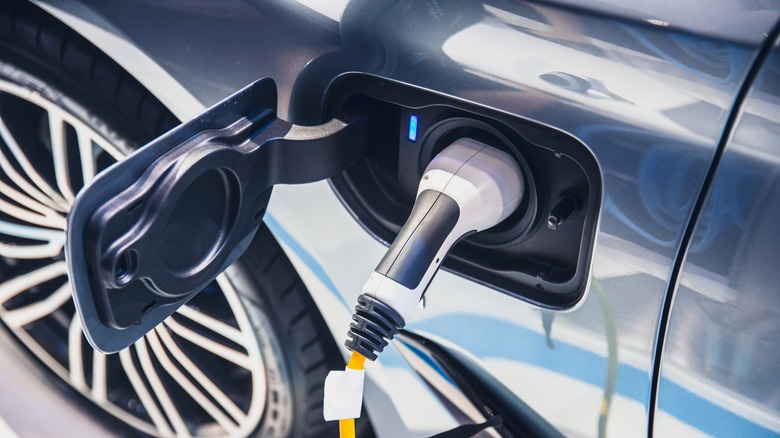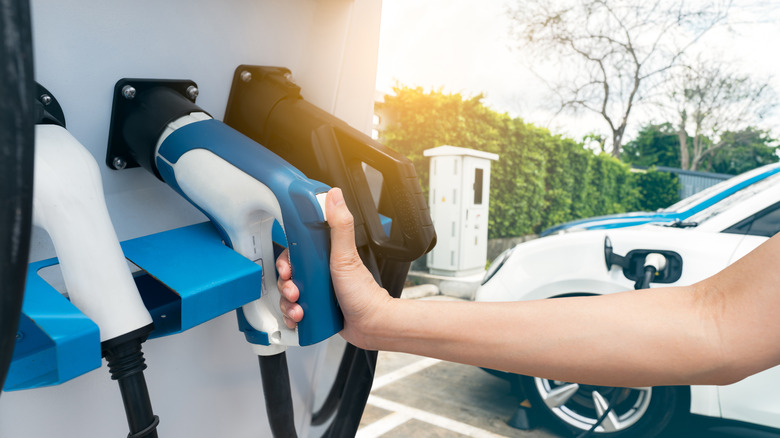Why The UK Is Running Into EV Charger Issues
Back in March of 2022, the United Kingdom government announced its intent to gradually phase out fuel-powered automobiles in favor of electric vehicles over the next several years, ultimately culminating in a complete ban on the sale of new fuel-combustion cars effective in 2030. It's a laudable goal to strive toward, especially for an entire country, and indeed, EVs are gradually increasing in popularity in the UK as a result. However, the beginning of the all-EV shift has brought with it some major concerns.
Gas stations around the United Kingdom have been experiencing a gradual increase in the number of EV drivers coming to their stations to use electric chargers. That's not a problem in itself — EV chargers are fairly easy for the stations' owners to get ahold of, not to mention more affordable as the technology circulates. The problem is that the stations aren't receiving enough electricity from the local power stations to actually use the chargers, meaning they've got lines of EV drivers pulling in to charge with absolutely nothing.
Unprepared electrical grid
According to Moto Hospitality chief executive Ken McMeikan, who recently spoke to BBC Radio 4, the stations owned and operated by his company are all experiencing the same problem — plenty of EV chargers, no electricity flowing through them.
McMeikan said that the cause of this problem lies with local power providers and their production targets. Or rather, their distinct lack of production targets.
"There was a target set for the number of chargers by the end of 2023 that there would be at each motorway service area and that was a minimum of six," McMeikan explained.
"Sadly what there hasn't been is a target set for the power companies of the amount of power that's going to be required to operate those chargers and also a time commitment for the power companies of when that power would be made available ready for those chargers to start to operate."
In short, McMeikan's many stations have just as many chargers out as they do traditional gas pumps, but much like how gas pumps are useless without fuel deliveries, those chargers can't do anything if the power companies aren't producing energy to match the increasing need. By McMeikan's estimate, by the time new gas cars are banned in 2030, the power grid will need to be outputting at least 12 times its current energy, a goal that, at least with current standards, won't be reached.

